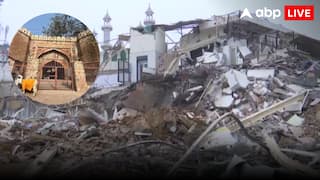Centre Hikes Subsidy By 140%, Farmers To Buy DAP At Old Rates
Every year, the government spends about Rs 80,000 crore on subsidies for chemical fertilisers. With this hike in subsidy for DAP, the government will spend an additional Rs 14,775 crore as subsidy in the Kharif season of this year.

New Delhi: In what is being hailed as a ‘historic’ decision by the Prime Minister, the government announced a subsidy of Rs1,200 per bag of di-ammonium phosphate (DAP) fertiliser, instead of the current Rs500, even though it will cost the exchequer an additional Rs 14,775 crore.
The decision was taken at a high-level meeting chaired by Prime Minister Narendra Modi, according to a PMO statement. "Government is committed to improving the lives of farmers. Therefore, despite increase in global prices, we have decided to make available the fertiliser at old rate," Modi tweeted in Hindi. Also Read: INS Continues Search For 61 Missing After Barge Sank Due To Tauktae, Probe Ordered On ONGC's 'Lapses'
"A historic decision was taken to increase the subsidy for DAP fertiliser from Rs 500 per bag to Rs 1200 per bag, which is an increase of 140 per cent. ....With today's decision, farmers will continue to get a DAP bag for Rs 1200," the Prime Minister's Office (PMO) said.
What’s the reason behind this hike?
The decision comes a month after the fertiliser companies announced a sharp hike in the DAP prices. The government decided to raise the subsidy by a whopping 140 percent to ensure the soil nutrient is available to farmers at old rates despite a sharp rise in global prices.
After urea, DAP is the most widely used used fertiliser in the country. The subsidy will aslo serve to offset the price rise in international market, as the government decided to continue selling it at the old price of Rs 1,200 per bag.
The PM also said his government is committed to the welfare of farmers and will take all efforts to ensure that they do not have to face the brunt of price rise, the PMO added. "The central government has decided to bear all the burden of price hike. The amount of subsidy per bag has never been increased so much at once," the statement added.
What’s the govt expenditure for chemical fertiliser?
Every year, the government spends about Rs 80,000 crore on subsidies for chemical fertilisers. With this hike in subsidy for DAP, the government will spend an additional Rs 14,775 crore as subsidy in the Kharif season of this year, it said.
The high-level meeting discussed the increase in domestic fertiliser rates due to the rising global prices of raw materials such as phosphoric acid and ammonia used in the making of DAP fertiliser.
The global prices of phosphoric acid and ammonia have witnessed a rise by 60-70 per cent. The actual price of DAP comes to Rs 2,400 per bag, which was to be sold by fertiliser companies at Rs 1,900 after considering a subsidy of Rs 500, but with the current measure farmers will continue to get it at Rs1,200.
Last year, the actual price of DAP was Rs 1,700 per bag, on which the central government was giving a subsidy of Rs 500. The companies were, therefore, selling the fertiliser to farmers for Rs 1,200 per bag, it added.
The current subsidy is one of the second major incentives announced in the farmers' interest, after teh government directly transferred Rs 20,667 crore to farmers' accounts under the PM-KISAN scheme on the day of Akshay Tritiya.
Retail prices of non-urea fertilisers such as DAP, Muriate of Potash (MoP) and NPK are decontrolled and determined by manufacturers, while the Centre gives them fixed subsidies each year.
Infact, the government had asked fertiliser companies to sell old stock of non-urea fertilisers at old rates in the interest of farmers. However, some companies had hiked the rates of DAP, as a result of hike in the global market.





































